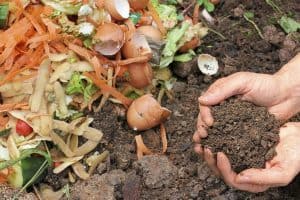The overall health of plants depends on the soil, where they get their nutrition. So it’s important to ensure the soil has all the macronutrients needed to sustain your plants roots.
If you’ve noticed your crops or plants are suddenly dying, it might not be a watering issue, rather it could be due to nutrient deficiency. Keep reading to find out how you can identify and treat most nutrient deficiencies and increase the nutrients in your soil for better plant growth.
How Do You Treat Nutrient Deficiency?
The first step to treating nutrient deficiency is to determine what specific nutrients are lacking such as potassium, phosphorus, nitrogen, or molybdenum deficiency. You also need to find out why they are undersupplied through a soil test.
Plant nutrient deficiencies can be complex problems as there are many factors to consider in finding the right treatment. You’ll notice younger leaves are slow to grow, and the leaf margins might be decreased as the crop struggles.
Once you’ve identified which nutrients are lacking, here are treatment options to help you fix nutrient imbalance:
- Leaf spraying. A common treatment for nutrient deficiency such as magnesium deficiency is to spray the leaves with Epsom salts. You can add some cow or turkey manure to enrich the soil with magnesium.
- Applying fertilizers. If your soil is lacking plant food, fertilizer application is the best solution. Plants require certain chemical elements in order to grow, so make sure to check the label to see if the commercial fertilizers you are buying contain the right nutrients needed. Remember to NOT over-fertilize soil when a plant is stressed.
- Weather forecasting. Be aware of the upcoming weather to prevent fertilizer leaching and stunted growth. If you’re updated with the weather, you can choose the best time for fertilization so that you can fix the nutrient deficiency.
- Adding nitrogen. Use a nitrogen nutrient additive to enhance your growing medium and prevent nitrogen deficiency. You can also add mulch made from organic matter including manure, compost, and Epsom salt. This can be a long-term supply of nitrogen for your soil.
How Can I Increase the Nutrients In My Soil?
The best method to increase nutrient uptake in your soil is to identify which elements are lacking. There are quick and easy tips to overcome the most common nutrient deficiencies.
With enough nutrients, you can enjoy higher crop yield or fruit production all year round. Below are nutrients that eventually drop that you should fix to avoid stunted plants and nutrient imbalances:
Phosphorus
To balance soil pH and prevent phosphorus deficiency which causes slow growth and decreased plant’s ability to absorb nutrients in the soil, you can add bone meal to your soil. After a few days, you will notice that your plants grow back to normal and their leaves start to have dark green color again from pale green.
Potassium Sulfate
Increase potassium nitrate levels in your soil to avoid yellow leaves or brown leaf edges and poor flowering. The best way to prevent potassium deficiency is to bury banana peels in the soil only one inch deep.
Calcium Carbonate
Crushed eggshells can provide enough calcium nitrate supply to soil-deficient leaf veins for new growth. Bury the eggshells well in the growing medium of the plant to treat calcium deficiency.
Sulfur
Choose ammonium sulfate, magnesium sulfate, or any other sulfur-rich additive available to get your plant back to life. Add the nutrient solution to the root zone while making sure you put only tiny quantities.
Final Advice
There are many ways to treat nutrient-deficient soil, but organic matter is an essential component for plant health. Before you add any solutions to improve soil quality, make sure to identify the required nutrient that lacks by determining the deficiency symptoms.
Moreover, do not use sandy soils or chalky soils to grow your plant food. With the right environmental factors, you can enjoy healthy growth and nutrient-rich plant food from your own garden using these natural methods.



